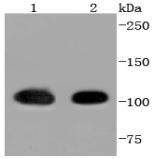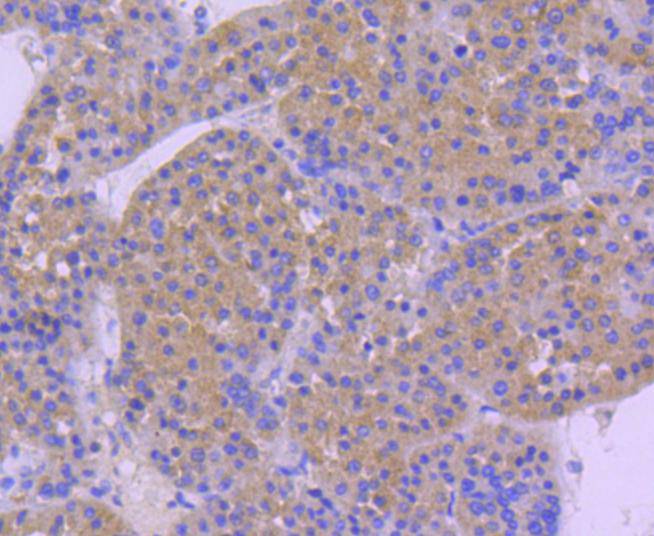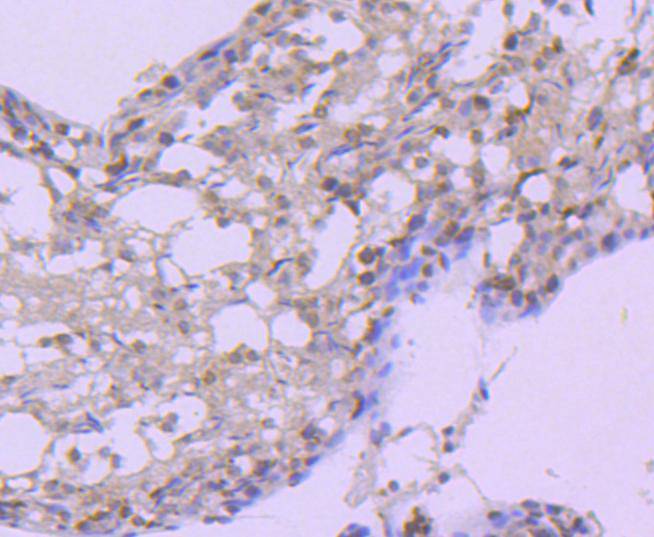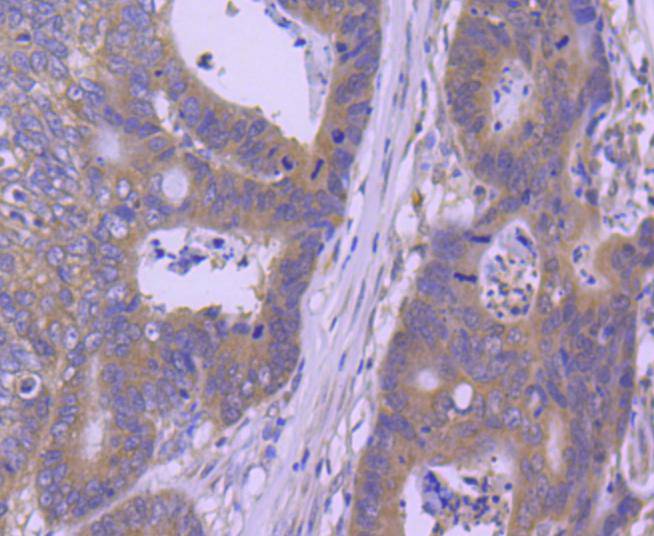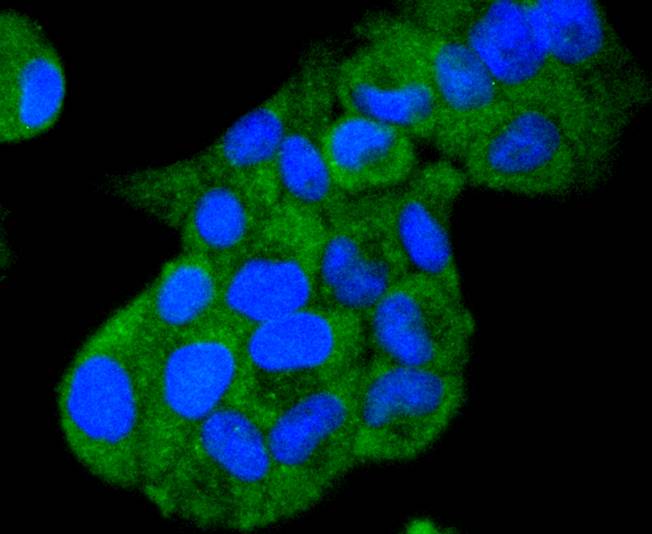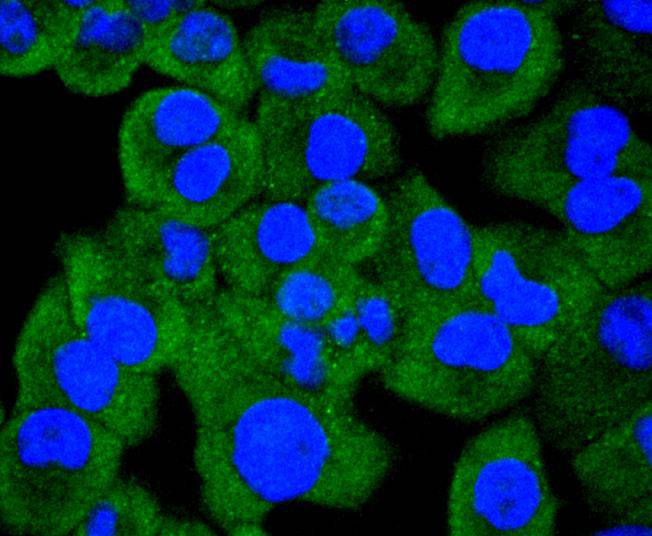The heat shock proteins (HSPs) comprise a group of highly conserved, abundantly expressed proteins with diverse functions, including the assembly and sequestering of multiprotein complexes, transportation of nascent poly-peptide chains across cellular membranes and regulation of protein folding. Heat shock proteins (also known as molecular chaperones) fall into six general families: HSP 90, HSP 70, HSP 60, the low molecular weight HSPs, the immunophilins and the HSP 110 family. The HSP 110 family (also known as the HSP 105 family) is composed of HSP 105, Apg-1 and Apg-2. HSP 105 is a testis-specific and HSP 90-related protein. Research indicates that HSP 105 is specifically localized in the germ cells and may translocate into the nucleus after heat shock. It is suggested that HSP 105 may contribute to the stabilization of p53 proteins in the cytoplasm of the germ cells, preventing the potential induction of apoptosis by p53.

